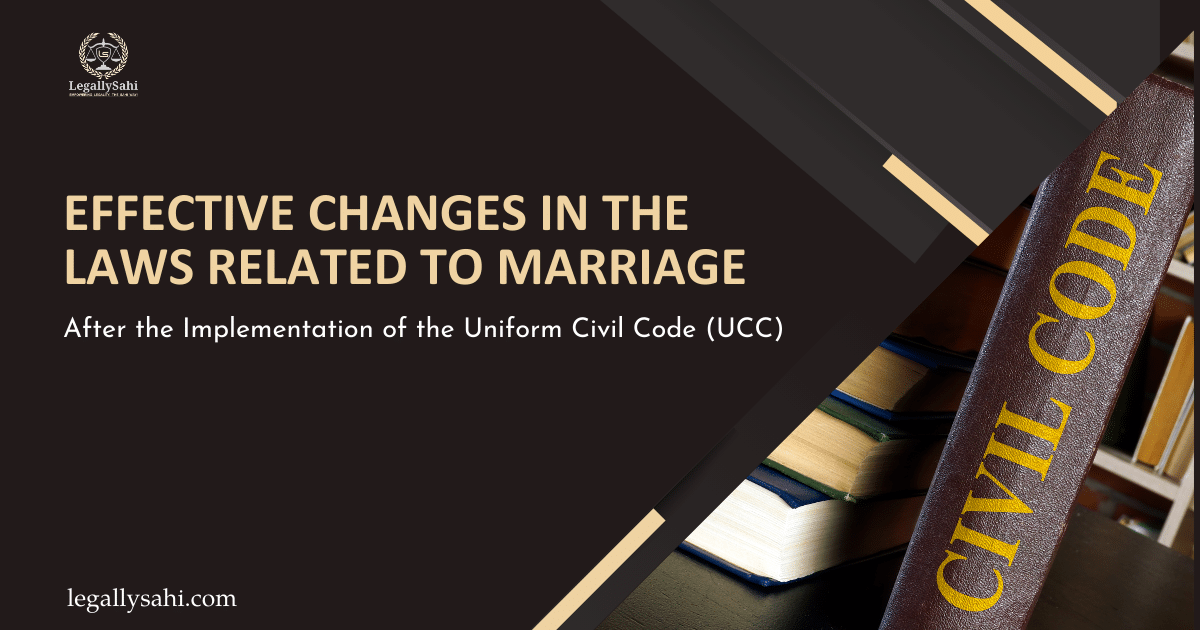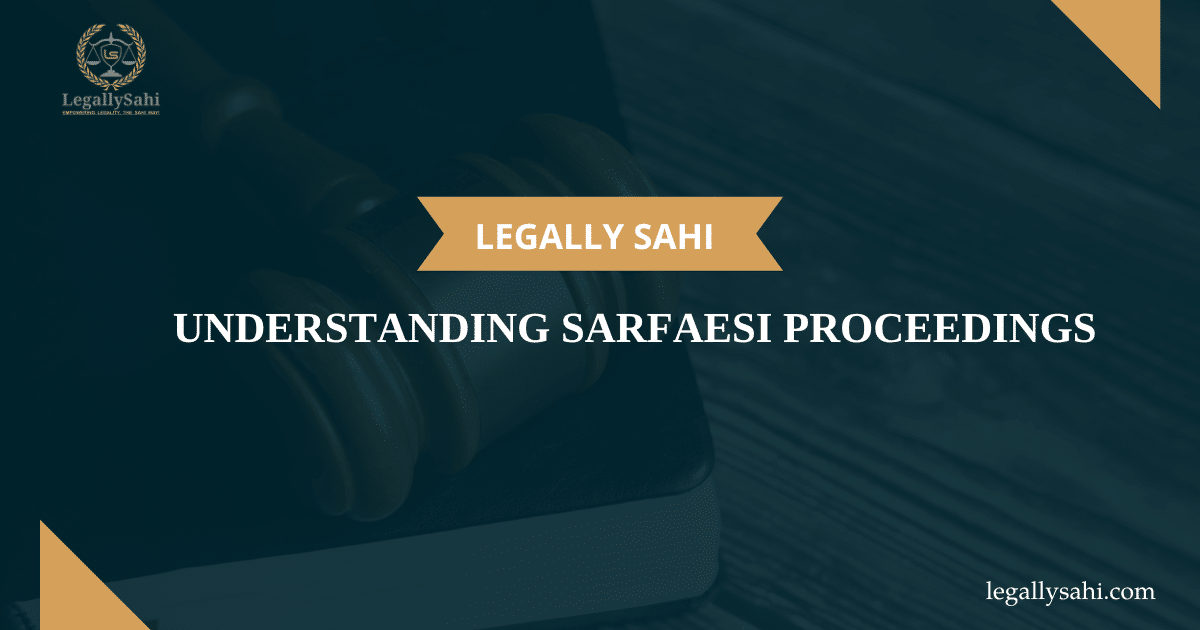Family disputes, especially those involving custody and child support, can be emotionally draining and legally complex. These issues often arise during divorce or separation and can have long-lasting impacts on all parties involved, particularly the children. This is where a family court lawyer comes into play. In this blog, we will explore the crucial role of a family court lawyer in resolving custody and child support disputes, with references to relevant acts and laws, and how Legally Sahi can provide the legal support and guidance you need.
Understanding Custody and Child Support Disputes
Custody Disputes: Custody disputes revolve around who will have the legal and physical responsibility for a child after parents separate or divorce. There are two main types of custody:
- Legal Custody: The right to make important decisions about the child’s life, such as education, health care, and religious upbringing.
- Physical Custody: Refers to where the child will live and the day-to-day care provided.
Child Support Disputes: Child support involves the financial responsibility of the non-custodial parent to contribute to the child’s living expenses, including housing, education, food, and healthcare.
Relevant Acts and Laws
In India, custody and child support disputes are primarily governed by various family and child welfare laws. The following acts and laws are particularly relevant:
The Hindu Minority and Guardianship Act, 1956
This act outlines the natural guardianship of minors among Hindus and the legal rights of guardians.
The Guardians and Wards Act, 1890
This act applies to all religions and deals with the appointment of guardians and their powers, duties, and liabilities.
The Hindu Marriage Act, 1955
This act governs divorce and related matters among Hindus, including child custody and support.
The Juvenile Justice (Care and Protection of Children) Act, 2015
This act focuses on the care, protection, and rehabilitation of children in conflict with the law and those in need of care and protection.
The Protection of Women from Domestic Violence Act, 2005
This act provides for the protection of women from domestic violence, which can include provisions for child custody and support in cases of domestic disputes.
The Role of a Family Court Lawyer
A family court lawyer is an attorney who specializes in family law issues, including custody and child support disputes. Here are the key roles and responsibilities of a family court lawyer in these situations:
1. Legal Representation and Advice
- Expert Legal Advice: A family court lawyer provides expert legal advice to help you understand your rights and obligations under the law.
- Representation in Court: They represent you in family court, presenting your case effectively to ensure the best possible outcome for you and your child.
2. Mediation and Negotiation
- Mediation Services: Lawyers can act as mediators to facilitate discussions between parents to reach an amicable agreement without going to court.
- Negotiation Skills: They negotiate terms of custody and child support on your behalf, ensuring that your interests and those of your child are protected.
3. Documentation and Filing
- Legal Documentation: A family court lawyer handles all the necessary legal paperwork, ensuring that it is correctly filled out and filed in a timely manner.
- Court Filings: They file petitions, motions, and other legal documents with the court to initiate or respond to custody and child support cases.
4. Advocacy for the Child’s Best Interests
- Focus on the Child: Lawyers advocate for arrangements that serve the best interests of the child, balancing the needs and rights of both parents.
- Guardian ad Litem: In some cases, a lawyer may be appointed as a guardian ad litem to represent the child’s interests independently in court.
5. Ensuring Compliance with Court Orders
- Enforcement of Orders: If one parent fails to comply with custody or child support orders, a family court lawyer can take legal action to enforce these orders.
- Modifications: They assist in modifying existing custody or support arrangements if there are significant changes in circumstances.
Why You Need a Family Court Lawyer
Navigating the complexities of custody and child support disputes without professional legal assistance can be overwhelming. Here are some reasons why you need a family court lawyer:
1. Expert Knowledge of Family Law
- Understanding Legal Framework: Family court lawyers have a deep understanding of the legal framework governing custody and child support, ensuring that your case is handled according to the law.
- Awareness of Local Laws: They are familiar with local laws and court procedures, which can vary significantly from one jurisdiction to another.
2. Objective and Rational Decision-Making
- Emotional Distance: Lawyers provide objective and rational advice, helping you make informed decisions without being clouded by emotions.
- Strategic Planning: They develop strategic plans tailored to your specific situation, maximizing your chances of a favorable outcome.
3. Protection of Your Rights
- Legal Protection: A family court lawyer ensures that your legal rights are protected throughout the dispute resolution process.
- Advocacy: They advocate on your behalf, ensuring that your voice is heard and your interests are represented.
4. Efficient Resolution
- Timely Resolution: Lawyers work towards resolving disputes efficiently, minimizing the time and stress involved in prolonged legal battles.
- Avoiding Pitfalls: They help you avoid common legal pitfalls and procedural errors that could delay or jeopardize your case.
5. Support and Guidance
- Emotional Support: Beyond legal advice, lawyers provide emotional support and reassurance during what is often a challenging time.
- Guidance Through the Process: They guide you through every step of the process, from filing initial documents to appearing in court.
How Can You Select the Right Family Court Lawyer?
Choosing the right family court lawyer is crucial to the success of your case. Here are some tips to help you make the right choice:
1. Experience and Expertise
- Specialization in Family Law: Look for a lawyer who specializes in family law and has significant experience handling custody and child support cases.
- Track Record: Consider their track record of success in similar cases.
2. Reputation and Reviews
- Client Reviews: Read client reviews and testimonials to gauge their reputation and client satisfaction.
- Professional Reputation: Check their standing with local bar associations and professional organizations.
3. Communication Skills
- Clear Communication: Choose a lawyer who communicates clearly and effectively, keeping you informed about the progress of your case.
- Listening Skills: Ensure they listen to your concerns and understand your goals.
4. Compatibility and Comfort
- Personal Compatibility: It’s important to feel comfortable with your lawyer, as you will be discussing personal and sensitive issues.
- Approachability: Choose someone approachable and accessible, who is willing to address your questions and concerns.
5. Legal Fees and Costs
- Transparent Fees: Ensure that the lawyer provides clear and transparent information about their fees and any additional costs.
- Cost-Effectiveness: Consider the cost-effectiveness of their services, balancing quality with affordability.
Legal Services Provided by Legally Sahi
At Legally Sahi, we offer a comprehensive range of legal services to help you navigate the complexities of custody and child support disputes:
1. Legal Consultation
- Initial Consultation: We provide an initial consultation to understand your case and offer preliminary legal advice.
- Ongoing Advice: Our lawyers offer ongoing legal advice to guide you through the entire dispute resolution process.
2. Mediation and Negotiation
- Mediation Services: We offer mediation services to help you reach amicable agreements with your spouse.
- Negotiation: Our lawyers are skilled negotiators, working to achieve the best possible terms for you and your child.
3. Court Representation
- Legal Representation: We represent you in family court, presenting your case effectively and advocating for your rights.
- Document Preparation: Our team handles all necessary legal documentation and filings.
4. Child Advocacy
- Child’s Best Interests: We focus on advocating for arrangements that serve the best interests of your child.
- Guardian ad Litem: Our lawyers can act as guardians ad litem, representing your child’s interests independently.
5. Enforcement and Modification
- Order Enforcement: We take legal action to enforce custody and child support orders when necessary.
- Modification Requests: Our lawyers assist with modifying existing arrangements based on changes in circumstances.
Conclusion
Custody and child support disputes can be challenging and emotionally taxing, but with the right legal support, you can navigate these complexities and protect your rights and those of your child. A family court lawyer plays a vital role in resolving these disputes, providing expert legal advice, representation, and advocacy.
At Legally Sahi, we are committed to helping you achieve a fair and effective resolution to your custody and child support issues. Our experienced team of family court lawyers is here to provide the legal support and guidance you need. Contact us today for professional legal advice and assistance. Thank you for reading, and we look forward to assisting you with your legal needs.





